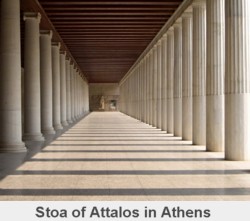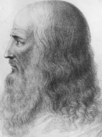| What good does it do? |
|
Throughout their lives people constantly make conscious and unconscious decisions. Some are small and some are
major forks in the road. Some are good and some are bad. We observe that, in general, a person's
good decisions improve the quality of life for the person and for others. These good decisions generally add to
people's happiness. Bad decisions that have harmful effects are usually regretted.
Therefore, before deciding to do or not to do something, it helps to ask, What good does it do?
Like dripping water, this can have a large cumulative effect. We are all motivated to do many things, and often
it's helpful to keep in mind Socrates', "How many things I can do without."
|
|
Progress is also
avoiding the opposite. |
|
This is obvious to people losing abilities due to aging. But it is always true that large negative
progress is just a brief bad decision away via an accident or involvement with other bad influence on our lives.
Humanity's impact on pristine natural environments of our ancestors is negative progress. We all impact these
environments with constant consumption of resources and production of waste. People who consume
large amounts of resources and cause proportional amounts of waste are particularly parasitic on the biosphere.
Therefore, simply reducing the harmful effects of our lives is progress. New technologies often have bad aspects
that harm individuals and society, so stopping the bad aspects is progress.
|
|
United we stand, divided we fall.
Aesop (620-560 BC) |
|
|
Aesop made this obvious in his fable, The Four Oxen and the Lion, where the oxen together could protect one another,
but were killed by the lion when they did not cooperate. Today it is
obvious that Aesop's maxim applies on a world scale due to the unstoppable evolution of dangerous technologies coupled with
people wanting to use them for self-centered ends. We are all sharing a common time on Earth, for whatever myriad of reasons.
We can cooperate and try to maximize humanity's potential or we can let the lion of
dangerous technologies and beliefs devour our species.
This flag, which has the western hemisphere on the other side, would be an excellent symbol to unite people trying to
improve our civilization.
|
|
 |
| |
Happiness is a state of mind.
If you want to be happy, be.
Leo Tolstoy (1828-1910) |
|
The point of these two similar ideas is that happiness is a matter of focusing on the positive aspects of life and
making the best of one's situation. Usually we have things to be thankful for, or at least things might be getting better,
or they can't get worse, or adversity is an opportunity that can make us stronger. Probably happiness, like manners,
honesty, and other helpful characteristics, can be learned.
|
|
Honesty is the best policy.
Benjamin Franklin (1706-1790) |
|
Wise people have given many reasons for the truth of this statement. Mark Twain gave a
practical reason. "If you tell the truth, you don't have to remember anything." Lies damage a
person's reputation if the lies are exposed and they damage the person's character even if not exposed.
It seems like dishonesty has become more a way of life in the past 50 years.
Several American presidents were confirmed liars, which set bad examples for the populace.
Dishonesty that would be considered a disgrace a few generations ago is now considered a fact of modern life.
Increasing dishonesty in our thinking and resulting beliefs and behavior may be the greatest threat to our society
and civilization.
|
|
 |
|
|
If this is true, as obvious evidence shows, then what are the implications of the widespread wickedness
seen by children and adults in movies, video games, television broadcasts, and on Internet websites? Does the wickedness that
people see and hear help them? Does it help our civilization? Wickedness has been part of people's environments since Confucius'
time, and presumably long before. The medieval symbol of wickedness and evil (right) is a dragon comprised of various animal
parts, and it sometimes has multiple, fire-breathing heads. Why, in our modern, "advanced" societies has there been relatively
little progress toward the elimination of wickedness? Why are people not better informed about human tendencies causing wickedness
and informed about the importance for everyone to control the tendencies? And along with this education, why are there not higher
and widely understood standards of behavior and an intolerance of behavior that does not meet the standards?
|
|
 |
| |
 |
|
|
What did Newton mean by this? He was particularly aware of how things in nature (e.g. snowflakes, rivers, sand dunes,
icicles, bee hives) have forms that are the result of natural processes. The chambered nautilus shell in the picture
is an example. The nautilus forms this shell instinctively, and we can form a similar shape following simple rules, as
shown here.
Since Newton's time, so many mysterious phenomena have been found to have natural causes, that it now appears possible that
all the phenomena we observe are the result of natural processes. Discovering the natural causes of mysterious phenomena should
be of interest to anyone wanting to find the truth about our universe -- including the truth about human nature
and why we are here. In recent centuries, increasing evidence indicates that finding the truth will not be simple because people
and our universe are very complex.
|
|

|
| |
 |
|
Newton helped show that nature is logical and efficient and that things and events have causes. The causes may be
explained simply -- as Newton skillfully demonstrated with his simple mathematical relationship for the "gravitational"
attraction between bodies. His "law of gravity" shows that a body "attracts" other bodies with forces that are in proportion to
the body's mass. Because the Earth is very massive, we can feel that it attracts us. People have relatively
little mass, so we don't feel the very weak gravitational forces attracting us toward other people. Behind Newton's simple law of
gravity is a more complete explanation for why bodies attract one another. The jury is still out as to what currently known
explanation, if any, correctly explains "gravity." Thus Nature's mysteries are somewhat like a Russian doll; inside a simple
explanation is a more complete explanation that has more unanswered mysteries of its own. Newton's statement
about the "simplicity" of things may reflect a belief that all things in nature probably behave according to a set of rules that
science has begun to reveal.
|
|
 |
|
Although nature is mysterious in many ways, in recent centuries it has become much less so as people solved many
mysteries. Once a mystery such as lightning and thunder is solved, it is usually easy to understand, as Galileo observed.
Like magic tricks, natural phenomena can be mysterious until they are understood.
But some phenomena are difficult for most people to understand,
even when explained. In fact, Galileo had great difficulties trying to convince people that the sun's apparent motion
around Earth was an illusion caused by rotation of Earth. Many people have difficulty understanding other complex phenomena
-- for example, the way we inherit characteristics of our parents. Most have little idea of the huge complexity
in their bodies and what makes them think and behave as they do. They do not realize that their bodies contain
matter from around the world, including matter from the sewers of London and from Hitler's body. And they might have
difficulty accepting this fact, which is
explained here.
The point is, all truths are not easy to understand, and people who cannot understand complex truths are at a big
disadvantage when trying to make sense of life. Galileo could have more accurately said, "Some truths...," or
"...are easier...," but he makes his point; we need to find more truths.
|
|
 |
|
|
People's beliefs are limited to what is sensed or to what they can understand. They tend not to believe in the myriad
of things that are contrary to what humans sense, unless they
can understand the reasoning why seemingly good evidence is actually misleading them. Galileo's experience trying to convince
leaders that the sun did not revolve around Earth is a good example where people's thinking was governed more by
instinct than by evidence and reason. Galileo had very good evidence and reasons, as
shown here.
But either the leaders could not understand the evidence or they could not believe the evidence because it was contrary to
their misleading observations and what they already believed. Probably it was a combination of both, and it resulted in
perpetuating beliefs throughout society that were wrong. Leonardo da Vinci, long admired for his art and intellect, said the
following which pertains to Galileo's belief and experience. "Anyone who conducts an argument by appealing to Authority
is not using his intelligence, he is just using his memory."
|
|

|
| |
 |
|
|
The following, which pertains to "dialogue," is from the January 2, 2011 New York Times column by Simon Critchley.
"Despite certain appearances to the contrary — Descartes seated next to his stove in the
Low Countries, Wittgenstein in his Norwegian cabin or indeed Nietzsche in his rented rooms in Turin — philosophy is not a
solitary activity of cogitation or rumination. In the various schools of antiquity, philosophy was a collective activity
conducted in the Academy, the Lyceum of Aristotle, the Garden of Epicurus or in the shade cast by the Stoa.
"In the contemporary world, it is difficult to find a Stoa large enough for us all to fit, so
our digital cave will have to suffice. But the point here is that philosophy is a shared activity, it is dialogue. And
dialogue is not the simple exchange of opinions, where I have my faith, my politics and my God and you have yours.
That is parallel monologue. One of the goals of dialogue is to have our opinions rationally challenged in such a way
that we might change our minds. True dialogue is changing one’s mind."
As
we struggle to become a wiser civilization, imagine how much faster we could advance if we really had dialogue of the
kind Critchley describes. What is impeding this dialogue? Isn't the unrealistic certainty with which political, religious,
scientific, and other beliefs are held a primary obstacle? Critchley's kind of dialogue is threatening or uninteresting to
people who are certain of their beliefs. It is sad that our certainty keeps us from learning from one another.
|
| |
 |
|
|
To a large extent, our lives are shaped by the evolution of our minds. Surely fate also shapes our lives,
but most of us have considerable control over how our thinking and lives evolve -- at least there are reasons for
thinking we can have some free will if we try. It also seems like we should be able to determine principles for guiding
the evolution of our thinking and lives. One reason for wanting to understand our lives is that history and our
observations show that wisdom often results in good things and ignorance often results in bad things. New wisdom can be
so valuable that one might expect philosophy to be of great interest to most people.
Trying to assess our situation on Earth seems like the logical starting point for determining principles to guide us.
The sciences, based on verifiable evidence, have been very useful for assessing our situation, and the findings of science
caused great improvements in people's thinking and lives. But science has limitations. Often experimental observations are
misleading, as in the case of Aristotle observing objects falling to Earth and concluding that all earthly objects have a
natural tendency to move to Earth. And the evidence shows that our minds have biases and other characteristics making them
prone to misunderstanding our existence. Therefore the ancient adage, "Know thyself," must certainly be one of our first
principles for guiding our thinking and lives.
|
| |
Although nature commences with reason and ends in experience it is necessary for us to do the opposite,
that is to commence with experience and from this to proceed to investigate the reason.
No human investigation can be called real science if it cannot be demonstrated mathematically.
Leonardo da Vinci (1452-1519)
|
 |
|












